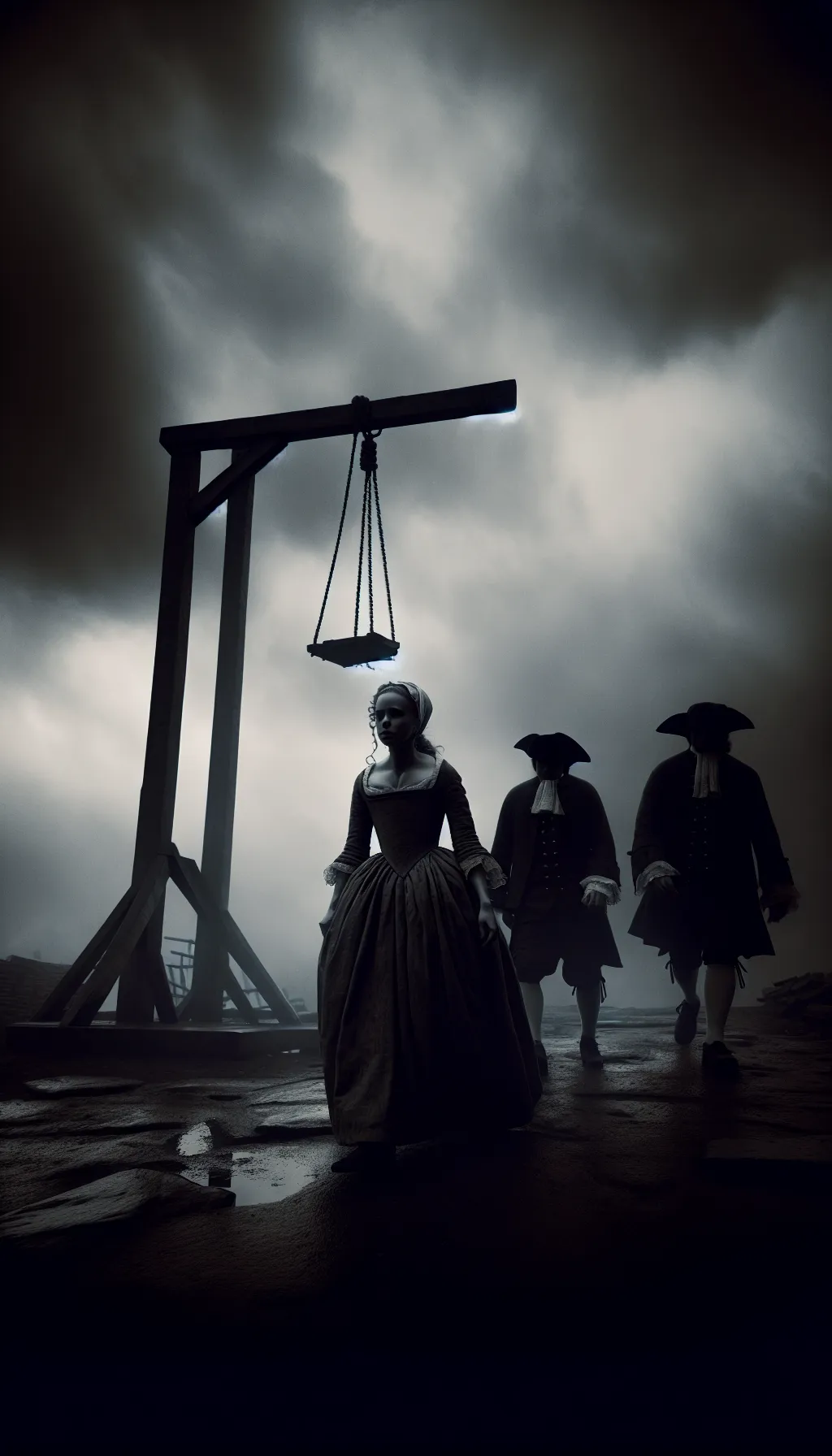United States – The First Execution: Salem's Dark Day - June 10, 1692
TLDR;
- Event: Bridget Bishop was the first person executed for witchcraft in the Salem Witch Trials on June 10, 1692, in Salem Village, Massachusetts.
- Context: The trials were fueled by paranoia, superstition, and personal vendettas, leading to mass hysteria and unjust accusations.
- Outcome: Bishop’s execution marked the start of a series of trials that resulted in 20 deaths, including 19 hangings and one pressing to death.
- Legacy: The trials are a cautionary tale about the dangers of fear-driven justice and the importance of due process, with Massachusetts later restoring the rights and names of the accused in 1711.
–
Story
The gallows stood stark against the Massachusetts sky, a grim silhouette of justice gone awry. On June 10, 1692, Bridget Bishop, a woman of strong will and outspoken nature, was led to her fate. Her crime? Witchcraft, a charge as nebulous as the fear that gripped Salem Village.

The Salem Witch Trials had begun in a climate of paranoia and superstition. The Puritan settlers, isolated in the New World, were beset by fears of the unknown. In this atmosphere, accusations of witchcraft spread like wildfire, fueled by personal vendettas and mass hysteria.
Bridget Bishop was the first to be executed, though not the first to be tried. Her trial was swift, her fate sealed by spectral evidence—testimonies of visions and dreams that defied logic. Despite her protests of innocence, the court found her guilty. Her execution marked the beginning of a dark chapter in American history, where reason was overshadowed by fear.
As the noose tightened around her neck, Bridget Bishop became a symbol of the tragic consequences of unchecked fear and the perils of a justice system swayed by hysteria. Her death was the first of many, as the witch trials spiraled into a frenzy that would claim the lives of 20 more, including 19 hangings and one man, Giles Corey, pressed to death.
The Salem Witch Trials serve as a haunting reminder of the dangers of extremism and the importance of due process. They challenge us to reflect on how fear can distort justice and the human cost of scapegoating. The trials ended not just because reason prevailed, but due to public backlash, including accusations against prominent figures like the governor’s wife. In 1711, Massachusetts passed a bill restoring the rights and good names of the accused, offering financial restitution to families.
–
| Would a different approach to justice have changed the course of the Salem Witch Trials? |